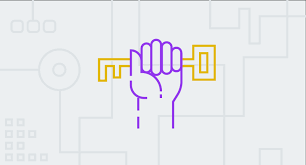“Property is dear to man, not only because it assures him of a sustenance while he lives, but also because it is a safeguard to those he must leave behind him when he quits the earth.” ~James Henry Potts, “Ownership,” Every Life a Delight, 1914

New to crypto, or a seasoned investor, you’ve probably heard the terms custodial or non-custodial when talking about wallets. Whichever label describes your wallet determines who has true custody over the assets in it. It’s important for a HODLer to know what exactly a custodial or non-custodial wallet is. Moreso important for one to know what kind of wallets they are using.
Wallets: Identifying Custody
Whether your wallet is hot or cold, a browser extension, an app, or if it’s linked to an exchange- it’s very easy to figure out which kind of wallet you have (custodial or non.) Cold wallets are always non custodial. Browser extensions as well as most any wallet in general is usually non custodial as well. But how do you tell? The answer lies in the keys.
Keys: Private and Public
The keys? Yes. The keys. There are two types of keys when talking about crypto wallets. Public and Private.
Public keys are the address given to a wallet that appears on block explorers and which is used to send or receive assets. It’s the key that everyone can see. Every wallet has one and some wallets are even made to automatically change this key as the wallet sees more transactions.
Private keys are a different story. No one sees these keys except (theoretically) the wallet owner. They are the keys that give access to the wallet to handle the coins that lie within. Private keys are most commonly given in an ordered number of random words or phrases (often called ‘recovery phrases’). Without these private keys, anything in a wallet will remain untouched.
Custodial vs. Non-Custodial: What’s the Difference?
So what is the key difference? Well- it has to do with the aforementioned private keys. The commonly used phrase in the cryptosphere is “not your keys, not your wallet.”
As we mentioned before, cold storage wallets and a wide variety of wallets are non-custodial. How do we know this? We know because of the acquisition of private key phrases at the creation of new wallets in these settings. You’ve been given a set of keys that’s unique to that wallet and without them all the coins behind them are lost or frozen.
These private keys keep your assets yours. They provide a means by which only the keeper of them may access and use funds. Pretty simple right?
On the flip side, there are custodial wallets. These are the wallets that are tied to larger exchanges that make trading and storing more easy and with less responsibility. Many have a custodial wallet, as some of the larger exchanges such as Coinbase or Crypto.com use these on their main platform (though both have DeFi wallet options that are non-custodial).
These wallets only require a username/email/phone number and a password. No private keys necessary. The functionality is basically the same, except without the added security. You can still send and receive on a custodial platform just as easily as a non custodial one.

The “Key” Difference
They both sound pretty similar in utility, but differ greatly in security. One may risk losing everything if their key phrases are lost. However this is the risk many deem necessary in taking full custody of their tokens. Without private keys, you’re simply allowing an exchange to hold your funds for you in your name, kind of like a bank. It’s your money and you’re entitled to it, but if the platform on which it is stored wants to take it- well they have full access.
Why Is Custody Important?
Sure, custodial wallets bring their perks to the table. Ease of use, less responsibility. Very convenient when you can reset your password to get access to your funds rather than having to search and search for your lost private keys. We get why they work.
Custody, however, is very precious for the true crypto HODLer. It’s one of the main reasons decentralization stands out as virtuous. Private property and keeping our assets out of the hands of a centralized few. That’s the main push of cryptocurrency: Decentralized currency.
Private keys and non-custodial wallets are foundational to this concept. We want to keep what’s ours, ours. Though it’s not exactly likely that an exchange like coinbase or even your bank is going to seize or freeze your holdings, it’s quite possible.

The Hard Reasons Why:
We’ve seen it in the news a great deal recently: Canada, Russia and Ukraine, China… The money grabbing power that governments have has been put on display for all to see. Perhaps the biggest selling point for Bitcoin or any other form of cryptocurrency has been their ability to pick and choose who can access their money. This strikes hard to the conscience of any HODLer.
Custodial wallets sure have their conveniences and benefits- but Non-custodial is the way to go. Keep your keys safe, keep your coins safe. Always remember: Not your keys, not your wallet!




